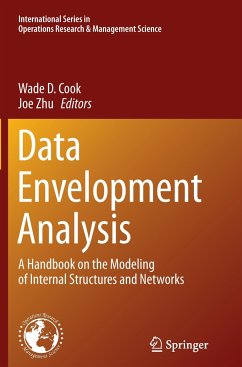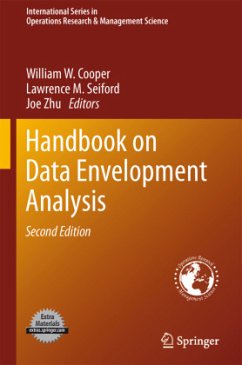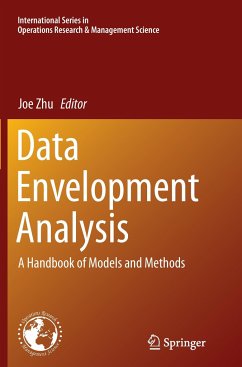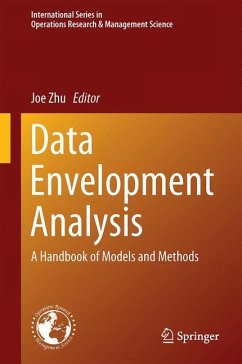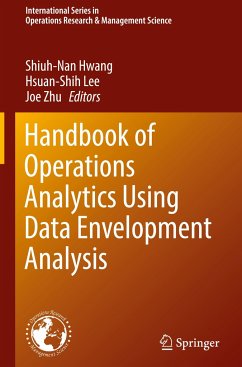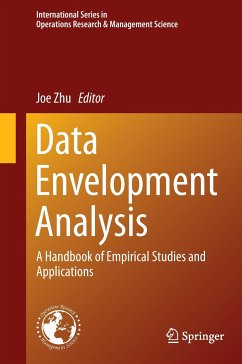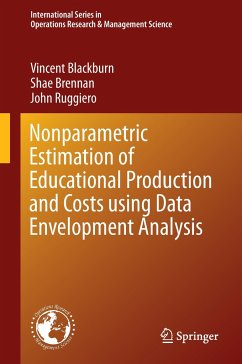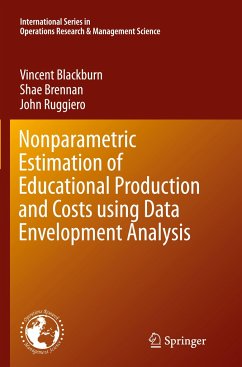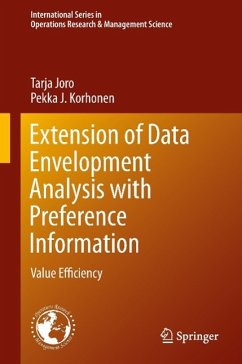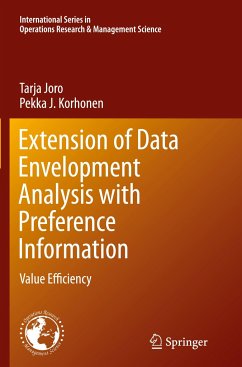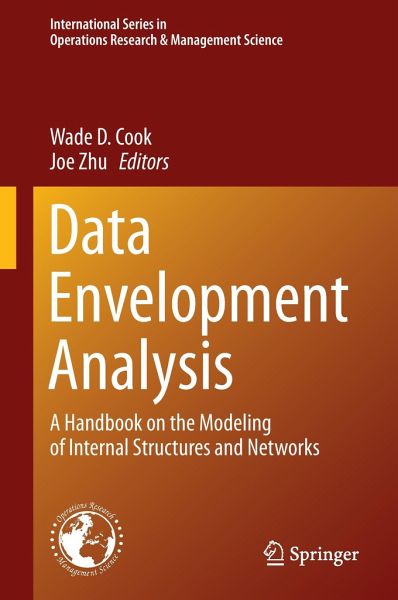
Data Envelopment Analysis
A Handbook of Modeling Internal Structure and Network
Herausgegeben: Cook, Wade D.; Zhu, Joe

PAYBACK Punkte
58 °P sammeln!
This handbook serves as a complement to the Handbook on Data Envelopment Analysis (eds, W.W. Cooper, L.M. Seiford and J, Zhu, 2011, Springer) in an effort to extend the frontier of DEA research. It provides a comprehensive source for the state-of-the art DEA modeling on internal structures and network DEA. Chapter 1 provides a survey on two-stage network performance decomposition and modeling techniques. Chapter 2 discusses the pitfalls in network DEA modeling. Chapter 3 discusses efficiency decompositions in network DEA under three types of structures, namely series, parallel and dynamic. Cha...
This handbook serves as a complement to the Handbook on Data Envelopment Analysis (eds, W.W. Cooper, L.M. Seiford and J, Zhu, 2011, Springer) in an effort to extend the frontier of DEA research. It provides a comprehensive source for the state-of-the art DEA modeling on internal structures and network DEA. Chapter 1 provides a survey on two-stage network performance decomposition and modeling techniques. Chapter 2 discusses the pitfalls in network DEA modeling. Chapter 3 discusses efficiency decompositions in network DEA under three types of structures, namely series, parallel and dynamic. Chapter 4 studies the determination of the network DEA frontier. In chapter 5 additive efficiency decomposition in network DEA is discussed. An approach in scale efficiency measurement in two-stage networks is presented in chapter 6. Chapter 7 further discusses the scale efficiency decomposition in two stage networks. Chapter 8 offers a bargaining game approach to modeling two-stage networks. Chapter 9 studies shared resources and efficiency decomposition in two-stage networks. Chapter 10 introduces an approach to computing the technical efficiency scores for a dynamic production network and its sub-processes. Chapter 11 presents a slacks-based network DEA. Chapter 12 discusses a DEA modeling technique for a two-stage network process where the inputs of the second stage include both the outputs from the first stage and additional inputs to the second stage. Chapter 13 presents an efficiency measurement methodology for multi-stage production systems. Chapter 14 discusses network DEA models, both static and dynamic. The discussion also explores various useful objective functions that can be applied to the models to find the optimal allocation of resources for processes within the black box, that are normally invisible to DEA. Chapter 15 provides a comprehensive review of various type network DEA modeling techniques. Chapter 16 presents shared resources models forderiving aggregate measures of bank-branch performance, with accompanying component measures that make up that aggregate value. Chapter 17 examines a set of manufacturing plants operating under a single umbrella, with the objective being to use the component or function measures to decide what might be considered as each plant's core business. Chapter 18 considers problem settings where there may be clusters or groups of DMUs that form a hierarchy. The specific case of a set off electric power plants is examined in this context. Chapter 19 models bad outputs in two-stage network DEA. Chapter 20 presents an application of network DEA to performance measurement of Major League Baseball (MLB) teams. Chapter 21 presents an application of a two-stage network DEA model for examining the performance of 30 U.S. airline companies. Chapter 22 then presents two distinct network efficiency models that are applied to engineering systems.





